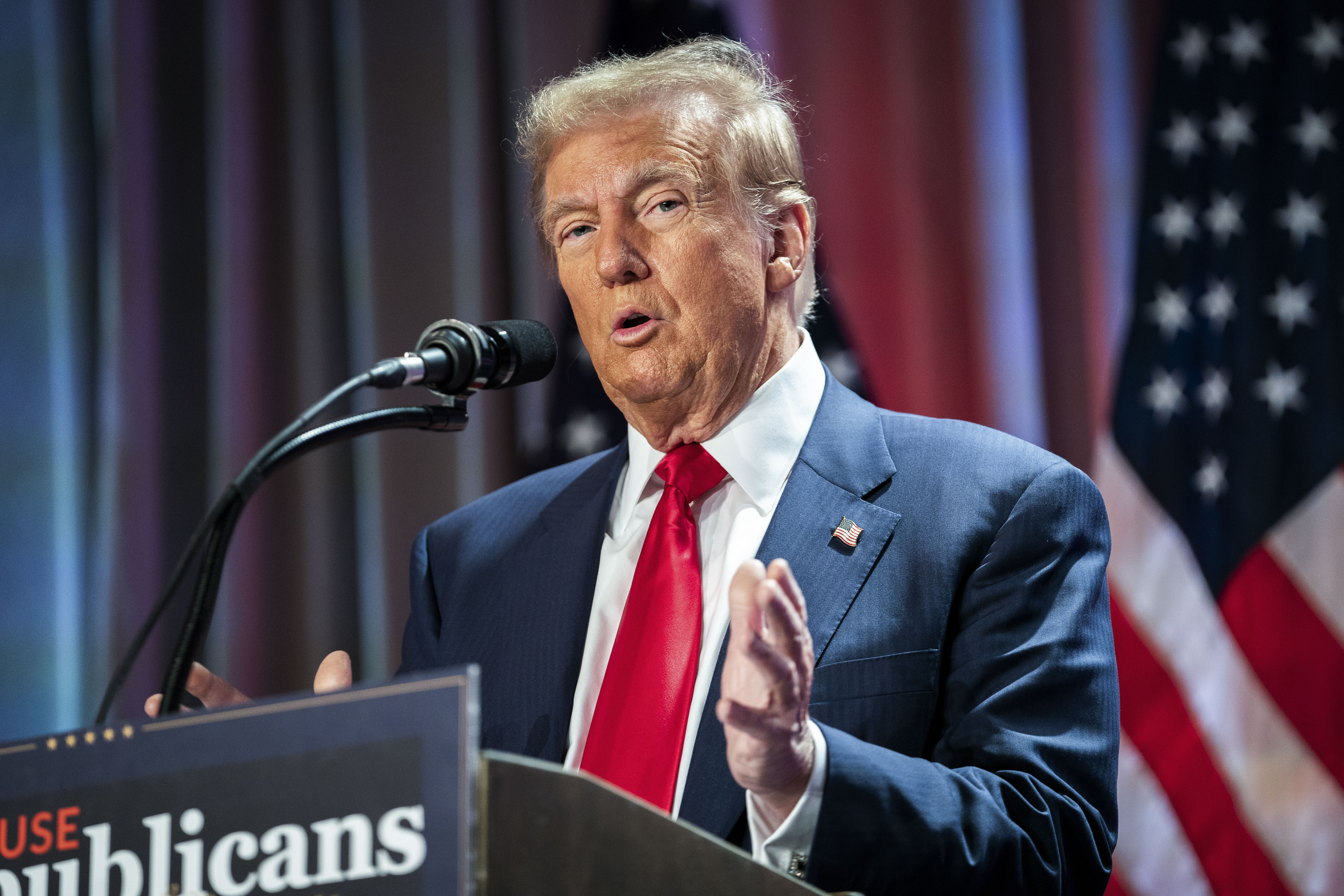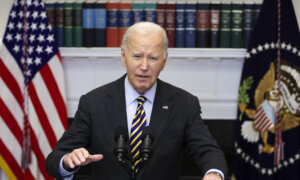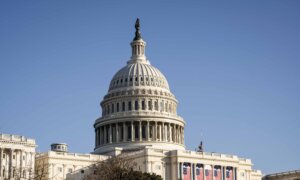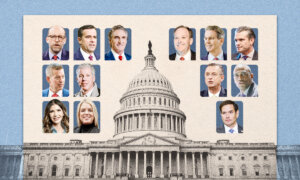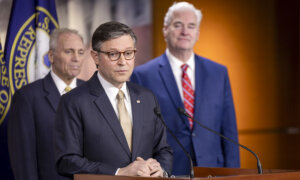WASHINGTON—To allow his Cabinet picks to hit the ground running, President-elect Donald Trump has said he would like to use recess appointments to fill vacancies, rather than the regular Senate confirmation process.
However, for those that require confirmation, their term would expire in two years unless the Senate officially confirms their appointments.
So far, Trump has announced his picks for some key positions, including Robert F. Kennedy Jr. for secretary of health and human services, House GOP Conference Chairwoman Elise Stefanik (R-N.Y.) for U.S. ambassador to the United Nations, Rep. Matt Gaetz (R-Fla.) for attorney general, former Rep. Lee Zeldin (R-N.Y.) for EPA administrator, former Director of National Intelligence John Ratcliffe for CIA director, Fox News commentator Pete Hegseth for defense secretary, South Dakota Gov. Kristi Noem for homeland security secretary, Sen. Marco Rubio (R-Fla.) for secretary of state, and former Rep. Tulsi Gabbard (D-Hawaii) for director of national intelligence.
Trump also announced campaign co-chair Susie Wiles as White House Chief of Staff and Rep. Michael Waltz (R-Fla.) as his national security adviser. Neither will need Senate confirmation.
How Does the Senate Confirmation Process Work?
Under Article II, Clause II of the Constitution, the Senate must approve the president’s nominees for Cabinet, ambassador roles, and some other executive branch positions.It states that the president “shall nominate, and by and with the advice and consent of the Senate, shall appoint ambassadors, other public ministers and consuls, judges of the Supreme Court, and all other officers of the United States.”
Nominees will go before the Senate committee that oversees the agency they have been tapped to lead. For example, Gaetz would go before the Senate Judiciary Committee.
The director of the Office of Management and Budget, whom Trump has not named, goes before the Senate Budget Committee and the Senate Homeland Security and Governmental Affairs Committee.
Hearings begin with the committee chairman and ranking member giving opening statements followed by the nominee giving his or her opening statement, usually five minutes, as their written statement is entered into the record without objection. Senators usually have five minutes each to question the nominee. There are usually multiple rounds of questioning and hearings often last for hours. The questions senators ask nominees are usually about their past experience and what they would do if confirmed.
For example, during Neera Tanden’s hearings in 2021, her past posts on X were a topic of contention. Tanden was nominated by President Joe Biden to be director of the Office of Management and Budget, which is a Cabinet role. Tanden had a history of going after lawmakers on X, such as calling Senate Minority Leader Mitch McConnell (R-Ky.) “Voldemort” and “Moscow Mitch.”
The committee votes on whether to advance the nominee for a full Senate vote. The vote is non-binding and is essentially a recommendation to support or oppose the nominee. Therefore, the Senate majority leader can bring up the nomination for a floor vote.
After all, there is no constitutional requirement for there to be hearings or committee votes on nominees, rather just for the full Senate to vote on nominations. At least 51 votes are needed for confirmation. As the GOP will control the Senate with 53 seats, it cannot afford more than three defections. Vice President-elect J.D. Vance would help by casting the tie-breaking vote as president of the Senate.
During Trump’s first administration, Trump’s initial picks were all confirmed except for former CKE Restaurants CEO Andy Puzder, who withdrew from consideration to be Labor Secretary due to scrutiny over his personal and professional past.
Six nominees got at least 70 votes, with David Shulkin getting all 100 senators behind him in a roll call vote over his nomination to lead the Department of Veterans Affairs. The closest margin was Betsy DeVos for education secretary, as former Vice President Mike Pence had to break a 50–50 tie to get her over the finish line.
What About Recess Appointments?
Trump has also said that he wants to use recess appointments to fill vacancies. He made the demand to all candidates running to be Senate majority leader.“Any Republican Senator seeking the coveted LEADERSHIP position in the United States Senate must agree to Recess Appointments (in the Senate!), without which we will not be able to get people confirmed in a timely manner,” Trump said in a post on X on Nov. 10. “Sometimes the votes can take two years, or more. This is what they did four years ago, and we cannot let it happen again. We need positions filled IMMEDIATELY!”
All three Senate GOP leader candidates agreed, including Sen. John Thune (R-S.D.), who was elected the next Senate majority leader on Nov. 13.
Thune said in a post on X: “We must act quickly and decisively to get the president’s nominees in place as soon as possible, & all options are on the table to make that happen, including recess appointments. We cannot let Schumer and Senate Dems block the will of the American people.”
The U.S. Constitution states that “the President shall have Power to fill up all Vacancies that may happen during the Recess of the Senate, by granting Commissions which shall expire at the End of their next Session.”
In other words, Trump would be able to insert nominees that likely would not get confirmed by the Senate into top positions. The Senate currently has pro forma sessions, when no legislative business is done as most members are home, in order to prevent recess appointments.
Those who get in by recess appointments get the same status as those confirmed to those positions. That means they have the same authorities and pay, but their term would expire in two years unless the Senate takes action to confirm them under the normal process.
Thune suggested it is optimal to have Trump’s picks confirmed, but has yet to offer details on how and if recess appointments will be adopted.
“[What] we’re going to do is make sure that we are processing his nominees in a way that gets them into those positions so they can implement his agenda,” he told reporters on Nov. 13. “How that happens remains to be seen.”
